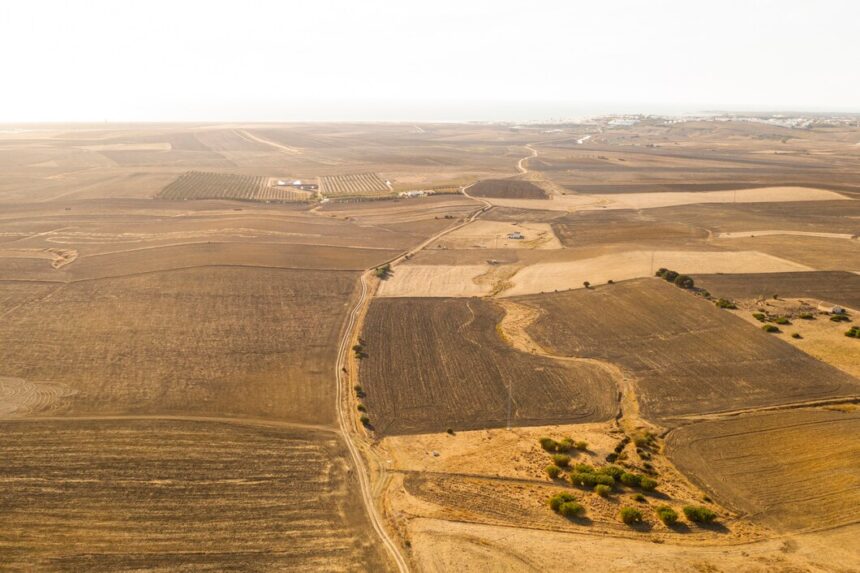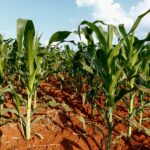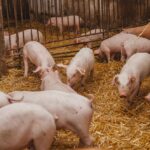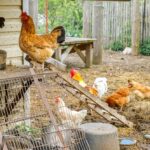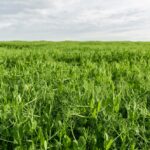Drought has become one of the most persistent and damaging challenges facing small farmers in South Africa. With rainfall patterns growing increasingly unpredictable due to climate change, water scarcity is now a critical issue that threatens food security, crop yields, and livelihoods. For small-scale farmers, who often rely on rain-fed agriculture and have limited resources, surviving a drought requires strategic planning, resilience, and adaptation. Fortunately, there are practical steps that can help minimize losses and build long-term sustainability.
1. Focus on Drought-Resistant Crops
Growing drought-tolerant crops is one of the most effective ways to adapt to water shortages. Varieties like sorghum, millet, cowpeas, and certain types of maize are better suited to arid conditions. These crops typically require less water, have shorter growing cycles, and can still produce a harvest even during dry spells.
2. Use Mulching to Conserve Soil Moisture
Mulching involves covering the soil with organic materials like straw, grass clippings, or dry leaves. This helps retain moisture, reduces evaporation, suppresses weeds, and regulates soil temperature. It’s an affordable method that improves soil health and keeps crops hydrated for longer.
3. Collect and Store Rainwater
Installing water tanks or constructing simple rainwater harvesting systems can provide a backup water supply when rainfall is scarce. Capturing runoff from rooftops or farm structures is an easy and cost-effective way to supplement irrigation during drought periods.
4. Practice Smart Irrigation
Traditional irrigation methods often waste water. Small farmers can benefit from switching to drip irrigation or using watering cans that target only the base of the plant. These techniques reduce water loss through evaporation and ensure that plants receive the necessary amount of moisture directly at their roots.
5. Improve Soil Health
Healthy soil retains water more efficiently. Adding compost, manure, or biochar helps improve soil structure and water-holding capacity. Encouraging earthworms and beneficial microbes can also boost the soil’s ability to withstand dry conditions.
6. Rotate Crops and Plant Diversely
Crop rotation not only improves soil fertility but also reduces pest build-up and disease outbreaks. Planting a mix of crops—especially those that mature at different times—helps spread the risk. If one crop fails due to drought, others may still survive and provide food or income.
7. Reduce Livestock Pressure
During a drought, grazing becomes difficult as pasture quality declines. Reducing herd size or rotating grazing areas can prevent overgrazing and protect land from long-term damage. Farmers can also consider supplementing with drought-resistant fodder crops or feed alternatives.
8. Tap into Government and NGO Support
There are numerous support programs in South Africa aimed at helping small-scale farmers during drought conditions. These include emergency feed schemes, water subsidies, and access to technical advice. Staying informed and connected to local agricultural extension offices can provide valuable assistance during hard times.
9. Join Farmer Cooperatives
Collaborating with other farmers through cooperatives or local groups makes it easier to pool resources, access bulk inputs at lower costs, and share information. Collective action strengthens bargaining power and provides emotional and logistical support in times of crisis.
10. Plan Ahead and Keep Records
Monitoring rainfall, keeping detailed records of harvests, and tracking which crops perform best in dry years helps farmers make better decisions over time. By planning for worst-case scenarios and building a financial cushion when times are good, small farmers can prepare more effectively for future droughts.
Drought will remain a reality for many South African farmers, but it doesn’t have to spell disaster. By making smart choices, improving water and soil management, and taking advantage of available support, small farmers can survive and even thrive under challenging conditions. With resilience and adaptation, the future of small-scale farming in South Africa can remain secure—even in a changing climate.
Join 'Farmers Mag' WhatsApp Channel
Get the latest Farming news and tips delivered straight to your WhatsApp
CLICK HERE TO JOIN
